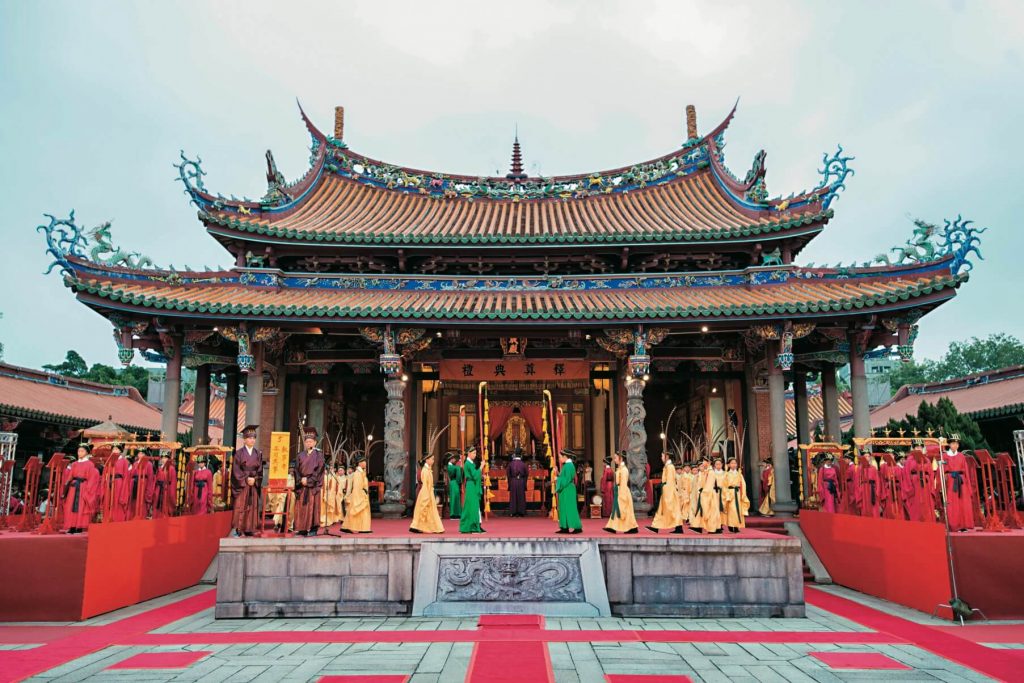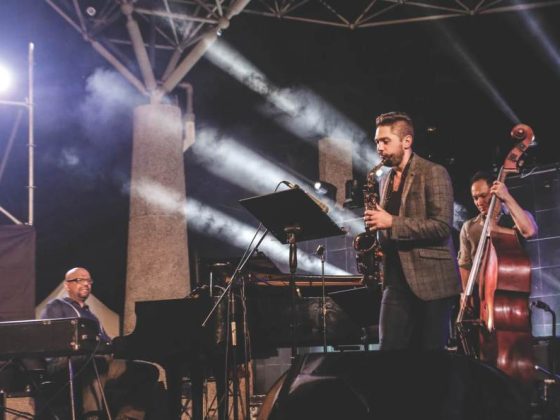WORDS BY Zhang Yinghua
PHOTOS BY Zhao Shouyan
TRANSLATION BY Joe Henley
September 28 is the birthday of Confucius, the founder of Confucianism, and appropriately it is also celebrated as Teachers’ Day in Taiwan. Confucius’s educational philosophies such as “education without class distinction” (有教無類) and “teaching according to one’s aptitude” (因材施教) has been highly admired in East Asia for thousands of years, and thus has earned Confucius the honorable title of “Ultimate Sage and First Teacher” (至聖先師). On his birthday, people in Taiwan pay tribute to the great educator to remind us to always uphold and maintain the traditional virtue of respecting our teachers.
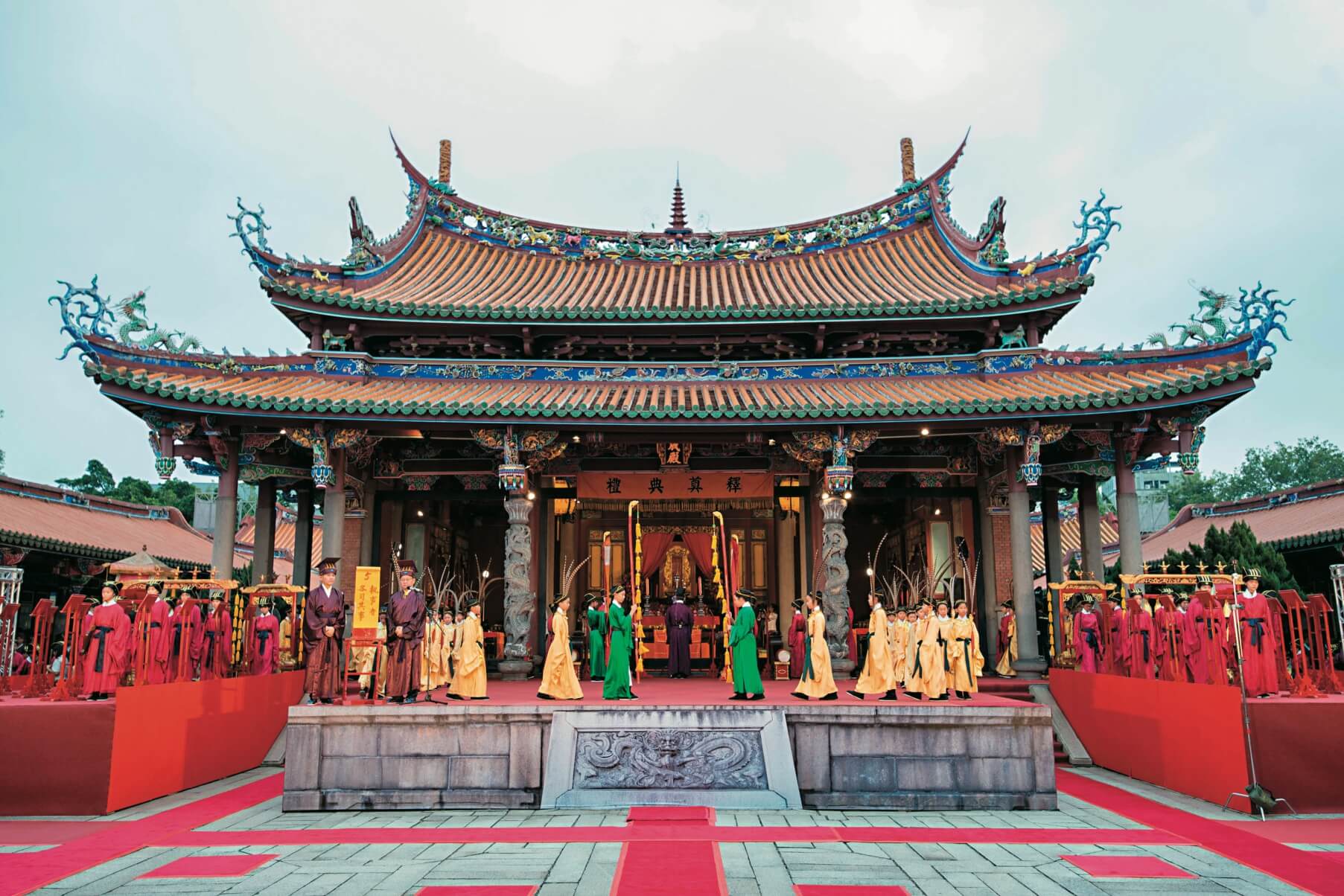
Breathing life into a thousand-year-old ceremony
Every year on Teachers’ Day, Taipei Confucius Temple (台北市孔廟) organizes a Memorial Ceremony for Confucius (祭孔釋奠典禮). The ceremony dates back to the day Confucius passed away, and Duke Ai of Lu (魯哀公), the ruler of Confucius’s homeland, gave the order to pay respect to the philosopher and educator. It was not until the Han dynasty (漢朝) that the ceremony became a nation-wide activity. As for the official ceremonial proceedings and the title “Ultimate Sage and First Teacher,” those were established in the Qing dynasty (清朝). Taipei Confucius Temple was established in 1930 with funds from the local gentry and has since held more than 80 ceremonies so far, attracting some 2,000 people every year to observe.
During the ceremony, students perform “the Yi Dance” (佾舞) which is an important part of the shared cultural heritage of Eastern Asia. A complete ceremony has 37 different procedures that can be generally divided into three portions: “Welcoming the Spirit,” “Worship,” and “Escorting the Spirit.” The ceremony is hosted by “the Consecration Officer” (奉祀官), a role that can only be played by Confucius’s grandsons, “the Master of Ceremonies” (引贊), who is responsible for chanting and guiding people to offer their gifts, “the Leader of Musicians” (樂長), who is in charge of singing and conducting the music and dance, “the Musicians” (樂生), who play Confucian Music, “the Yi Dancers” (佾生), who take part in the Yi Dance, and “the Deacons” (禮生), who attend to other relevant ceremonial affairs.
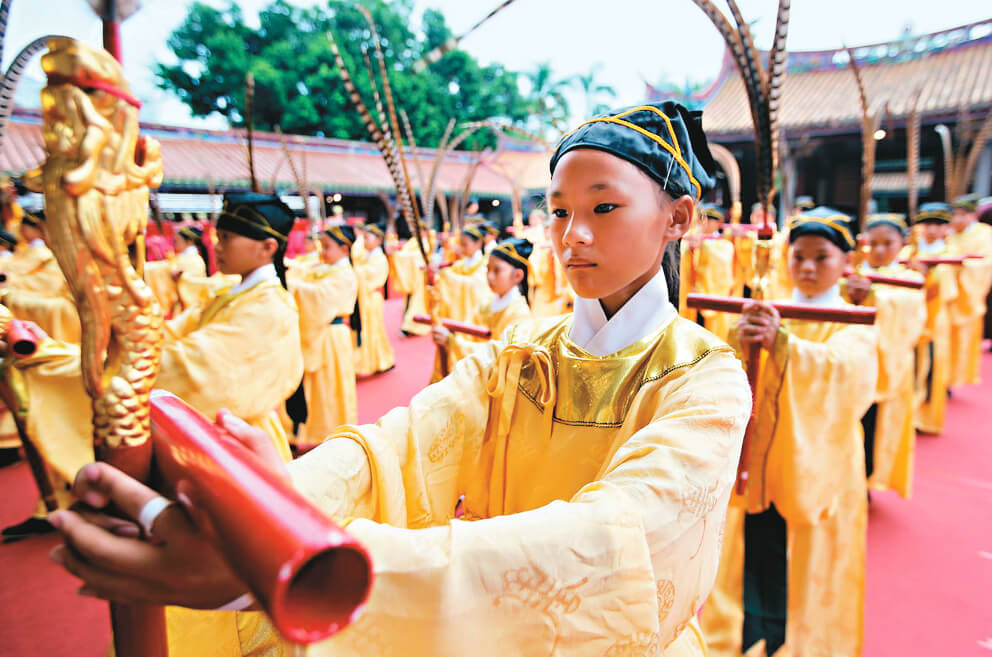
On the day of the ceremony, a raised platform will be built in front of the Dacheng Hall (大成殿), in which the memorial tablet of Confucius is placed. The platform is called Dan Chi (丹墀), and is used as the venue for the music and the Yi Dance.
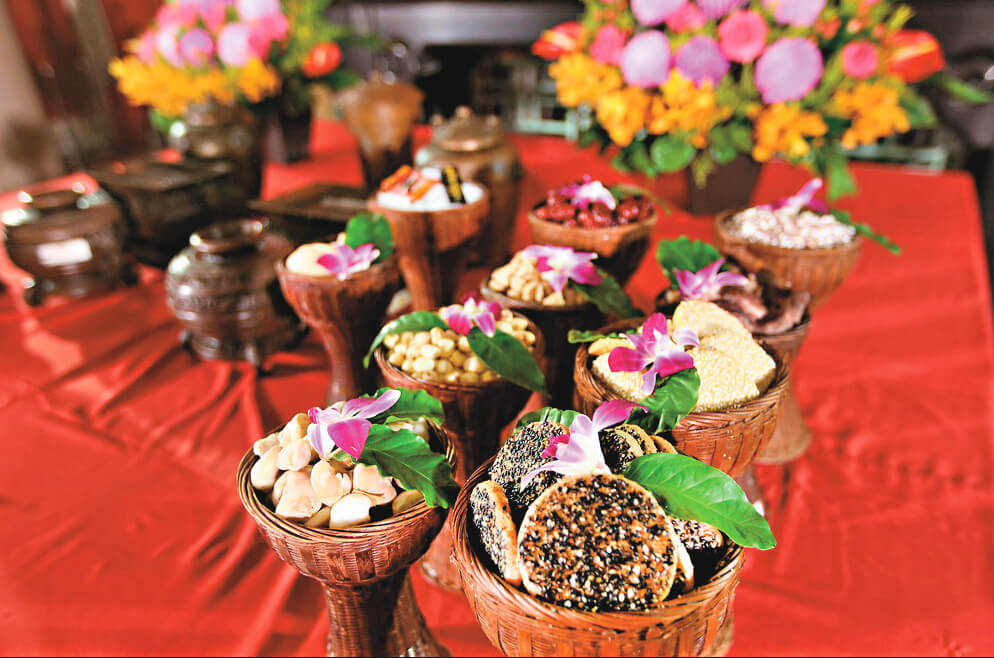
During the solemn ceremony, there are some procedures which carry a particularly special meaning. One of them is called “Burying the Sacrificial Remnants” (瘞毛血). This peculiar procedure involves one Deacon holding a plate which has on it the hair and blood of sacrificial livestock, and then burying it in the ground. The connotation of this movement includes the nourishment of the land by animals who were once nourished by the land, the endless succession of life, and purification. However, the use of real animal blood has been replaced by water mixed with red rice yeast due to the growing concern for animal welfare.
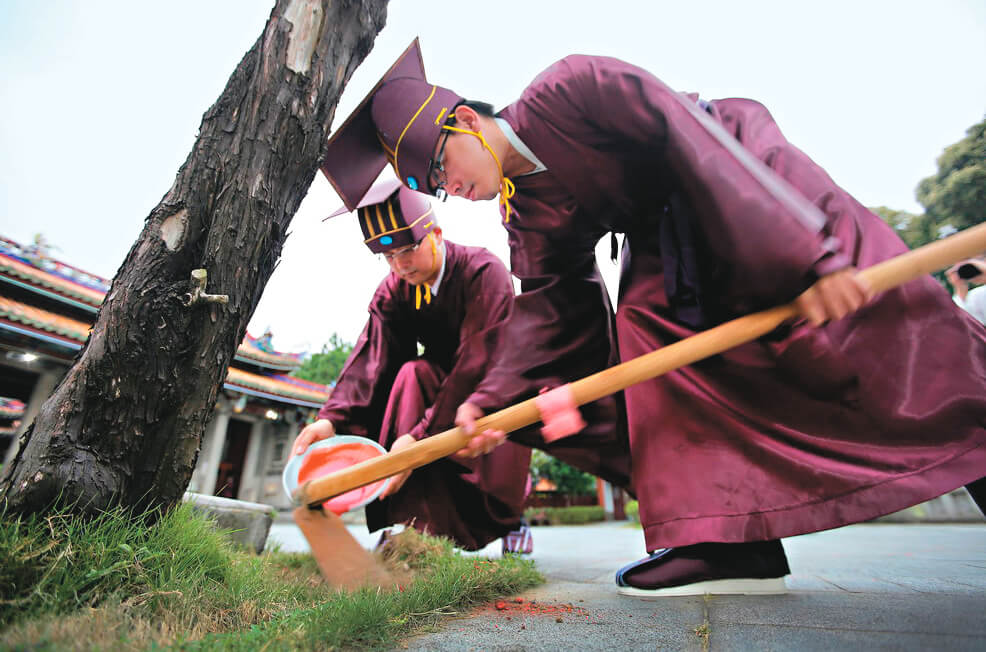
Evolving with time and refining the procedures
Growing up in the vicinity of Taipei Confucius Temple and having served as the mentor to Deacons for more than ten years, Chen Yingyi (陳應義) has a prodigious bond to the ceremony and has also witnessed his share of ceremonial changes over the years. He says, one example of this is the custom of “Plucking the Hair of Wisdom” (拔智慧毛), where the hair of wisdom refers to the hair taken from the head of a sacrificial ox.
According to folklore, plucking the hair of the ox that has been savored by the Sage of Literature (文聖), another honorific title of Confucius, will increase one’s wisdom. In recent years, the Hair of Wisdom has transformed into the Pen of Wisdom. These pens are made in the form of the Hair of Wisdom and carved with a message: “Learn with a constant perseverance and application” (學而時習之), an excerpt taken from The Analects of Confucius (論語). At the temple, these pens will be hung from a golden ox for people to “pluck.”
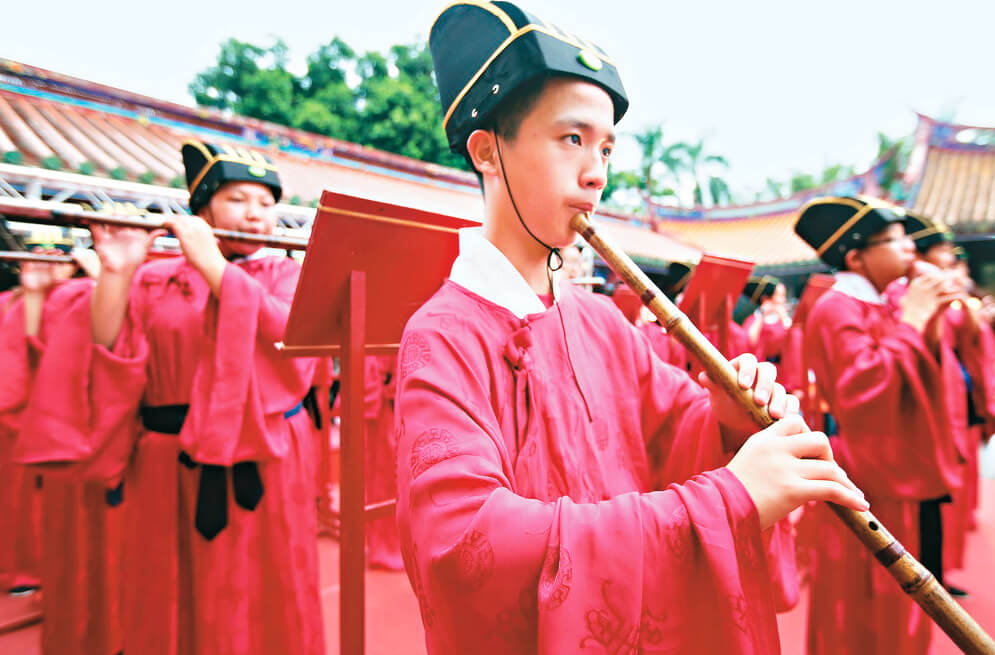
Though the long-standing ceremony has experienced several changes over the years, it is not only the ceremony that is worth preserving. We should also cherish its latent meanings, such as the promotion of cultural traditions, etiquette, and, above all, education. Taipei Confucius Temple always welcomes travelers to visit and join the ceremony. Just like Confucius taught us, it is always a pleasure to greet a friend from afar (有朋自遠方來, 不亦樂乎)!
This article is reproduced under the permission of TAIPEI. Original content can be found at the website of Taipei Travel Net (www.travel.taipei/en).

